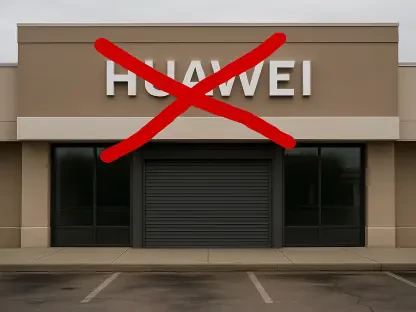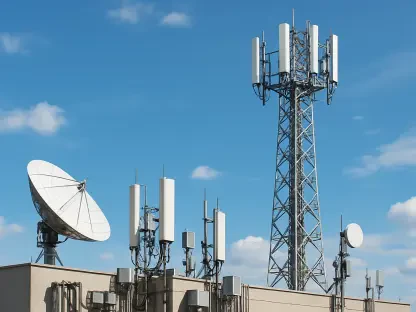In the evolving world of private space enterprises, Firefly Aerospace has emerged as a promising contender striving to achieve reliable and cost-effective satellite launch solutions. However, the Texas-based company recently faced another setback with its Alpha rocket during a mission to deploy a satellite for Lockheed Martin. This incident, involving a rocket crashing into the Pacific Ocean north of Antarctica after failing to achieve orbital velocity, underscores the inherent challenges in reaching operational consistency in the competitive aerospace industry. Despite initial successes and subsequent failures, Firefly remains firmly committed to overcoming these obstacles and expanding its capabilities. Their dedication to improvement is evident in their ambitious plans to conduct numerous future missions aimed at enhancing performance and broadening their offerings.
Assessing Previous Launch Performance
Struggles and Setbacks
Since its maiden voyage in September 2021, Firefly Aerospace’s Alpha rocket has been characterized by mixed results, amounting to two successes alongside two failures and two partial failures. These outcomes have emphasized the complexities involved in developing a rocket that achieves consistent performance. The Alpha rocket design is intended to provide low-cost services targeting mid-sized satellites, but technical shortcomings have repeatedly challenged its reliability. Despite the pattern of inconsistencies, Firefly continues to engage in ongoing investigations with various partners, including Lockheed Martin, the Space Force, and the FAA. This collaborative effort aims to identify and resolve the underlying issues, demonstrating the company’s commitment to continual improvement and adaptation.
Ongoing Investigations
The recent mission failure has prompted comprehensive analysis, with Firefly Aerospace actively collaborating with Lockheed Martin, the Space Force, and the FAA to investigate the rocket’s anomaly. These joint endeavors signify an effort to identify critical factors that contributed to the Alpha rocket’s inability to reach orbital velocity, thus ensuring the future success of its missions. The anomaly investigation marks a significant opportunity for technological refinement and serves as a potential turning point for Firefly’s endeavors. As the private aerospace sector continues to expand, the stakes for operational reliability become increasingly high, and addressing these challenges becomes imperative for Firefly to maintain competitiveness. While technical setbacks can impede progress, the concerted effort to dissect and improve the rocket’s performance demonstrates Firefly’s resilience and determination.
Diversified Ventures and Future Missions
Expanding Horizons
Beyond its recent Alpha rocket challenges, Firefly Aerospace is diversifying its ventures within the aerospace industry, showing promise beyond rocket launches. Notably, the success of Firefly’s Blue Ghost lunar module, which successfully carried NASA scientific instruments for a moon landing, signifies the company’s adaptability and potential for growth. This achievement underscores Firefly’s capability to engage in complex space missions while broadening its scope beyond satellite deployment. Such accomplishments reflect Firefly’s aspirations to carve a niche in diversified space exploration, leveraging its collaborative efforts to expand technological frontiers. With an eye on future industry partnerships and strategic mission planning, Firefly aims to augment the reliability of its launches and assert its presence in the evolving space sector.
Ambitious Plans for Growth
Looking to the future, Firefly Aerospace has outlined a robust timeline spanning five years, within which it intends to undertake 25 missions. This ambitious schedule demonstrates Firefly’s commitment not only to advancing its rocket technology for better reliability and performance but also to extending its footprint in aerospace ventures. Through collaborations with industry leaders and continued investment in research and development, Firefly is poised to refine its technology and expand capabilities. Such endeavors reflect Firefly’s dedication to fostering growth in the competitive space industry landscape. By focusing on technological innovation, strategic partnerships, and responsive adaptation to challenges, Firefly aspires to realize the potential for dependable satellite launch services, thereby enhancing its industry reputation.
Navigating Challenges with Resilience
Paving the Path Forward
The pursuit of reliable satellite launch solutions is fraught with challenges, but Firefly Aerospace’s resilience remains evident through its proactive strategies and advancement efforts. While setbacks are part and parcel of the aerospace development process, Firefly remains steadfast in its mission to enhance design consistency and reliability. The lessons learned from recent failures serve as valuable insights for improving future rocket launches and enhancing their competitiveness. Through collaboration with industry partners and ongoing investigations into anomalies, Firefly aims to transform challenges into opportunities for growth and technological refinement. Such strategies reflect a commitment to establishing dependable satellite launch solutions that meet the evolving needs of the industry.
Future Implications and Prospects
Firefly Aerospace is making strides in refining its Alpha rocket technology and operational processes, signaling a promising future. The company’s proactive approach to solving technical challenges demonstrates its insight into the shifting demands of satellite deployment in the aerospace industry. By diversifying its ventures and maintaining stable partnerships with industry players, Firefly is cementing its competitiveness and striving for sustainable expansion. Looking ahead, Firefly is set to play a crucial role in space exploration by delivering reliable satellite launch solutions and potentially redefining industry benchmarks. Despite previous hurdles, Firefly’s unwavering commitment to progress and adaptability positions it as a formidable presence in private aerospace ventures.
Through technological advancements and strategic alliances, Firefly aims to conquer past obstacles, further establishing itself in the competitive space industry. This determined approach underscores the company’s commitment to ensuring dependable satellite launch services, opening avenues for future achievements.









